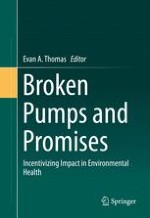2016 | OriginalPaper | Buchkapitel
9. A Critical Review of Carbon Credits for Household Water Treatment
verfasst von : James M. Hodge, JD, MPH, Thomas F. Clasen, JD, Ph.D.
Erschienen in: Broken Pumps and Promises
Aktivieren Sie unsere intelligente Suche, um passende Fachinhalte oder Patente zu finden.
Wählen Sie Textabschnitte aus um mit Künstlicher Intelligenz passenden Patente zu finden. powered by
Markieren Sie Textabschnitte, um KI-gestützt weitere passende Inhalte zu finden. powered by
